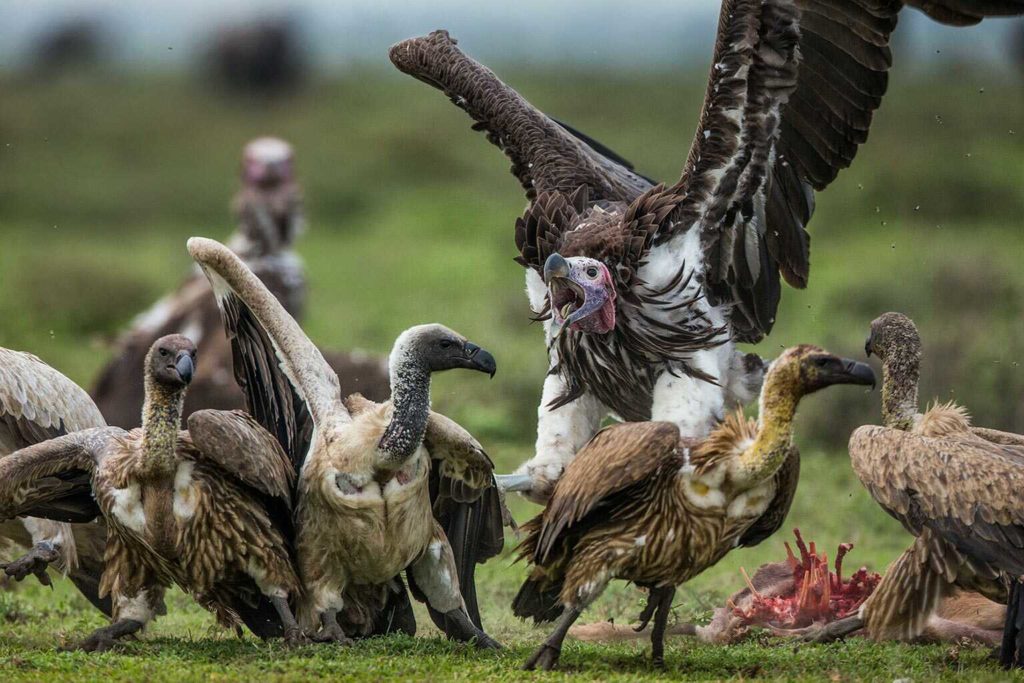Every year the world marks the International Vulture Awareness Day (IVAD) in September, to raise awareness about vultures. However, the picture is not rosy for these magnificent birds. In Africa, vulture populations have declined catastrophically over the last 50 years, with declines of up to 97% for some species. While vultures are oft seen as sinister birds that signify bad tidings or even death, the critical role they play in the environment is irreplaceable.

Vultures act as act as nature’s clean-up crew, removing carcasses from our environment thanks to their unique scavenging capabilities. It is estimated that a single vulture may be worth as much as $11,000 for these clean-up services alone. The loss of vultures in the ecosystem can have devastating ecological consequences, as seen in the 1990s when vulture populations in Asia crashed by up to 99% after feeding on cattle carcases containing diclofenac – a veterinary drug used to treat livestock, which is toxic to vultures.
This resulted in the increase of other scavengers including rats and dogs, which in turn increased disease transmission from carcasses to animals and humans. Indeed, a 2008 study on the consequences of this crash noted an increase of human rabies cases, in tandem with the vulture populations decline in the sub-continent
Africa’s vultures are faced with various threats, chiefly poisoning which accounts for about 61% of vulture mortalities on the continent. Poisoning can be intentional, where poachers lace carcasses with poison to kill vultures as they can alert authorities about poaching activities or unintentional where vultures are collateral damage in retaliatory poisoning incidences as a result of human wildlife conflict.
Vultures are also killed for belief-based use, where their parts are used to make traditional medicine to cure ailments or imbue the consumer with magical powers or bring good luck. Lastly, power infrastructure developments on the continent are increasingly threatening these endangered birds and are responsible for up to 9% of vulture mortalities through electrocutions or collisions with such infrastructure.
To stem this decline, BirdLife International, the world’s largest nature partnership, together with its network of partners is working to reverse vulture declines through multiple cross-cutting interventions by engaging local communities at the heart of these approaches. At the forefront of this fight is the need to address drivers of poisoning through mitigating human wildlife conflict, rapidly responding to wildlife poisoning incidences, and enforcing strict regulation on pesticides and other toxic substances used to poison wildlife.
Further, BirdLife partners on the continent are tackling drivers of belief-based use, through awareness creation, and engagement with local stakeholders like traditional healers to mainstream use of plant-based treatment regimens as alternatives to vulture parts.
Another key intervention is the establishment of Vulture Safe Zones (VSZs), which are safe havens for vultures and provide grounds for populations to thrive. Vulture Safe Zones are free from key threats including poisoning and electrocution, particularly in areas where vultures need significant protection. These zones are created through collaborations with landowners, managers, and community members.
In Southern Africa, more than 500,000 hectares of VSZs have been established in Zambia, Zimbabwe and South Africa, with others in the pipeline. Further, partnerships and collaborations between various stakeholders will be critical to save Africa’s vultures from sliding towards extinction.
By Salisha Chandra, Vulture Conservation Manager, BirdLife International, salisha.chandra@birdlife.org
